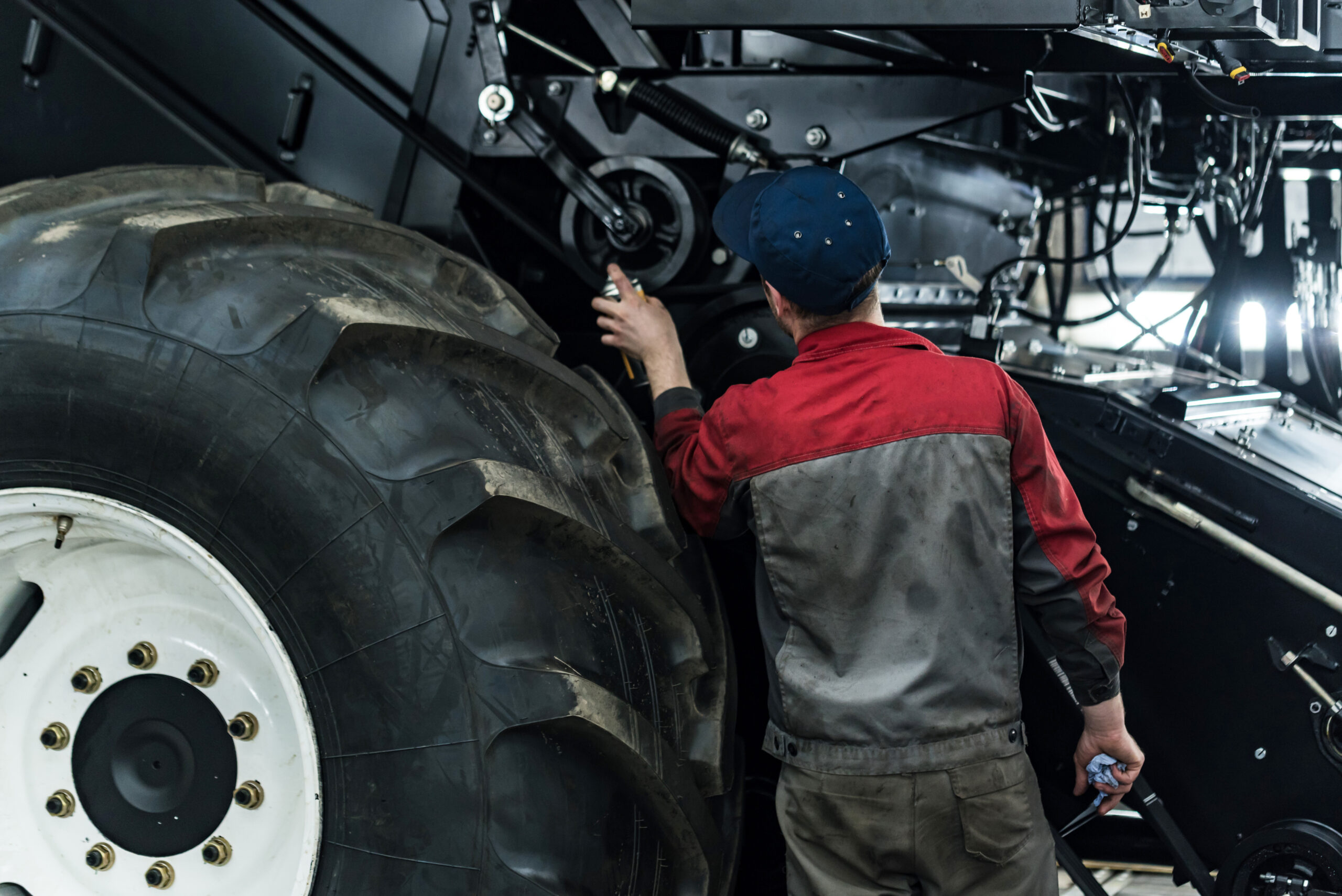Background
The passage of Senate Bill 3 in 2016, which authorized the increase of the California Minimum Wage to $15.00 per hour by 2022 or 20231 has raised concerns about how a section of Wage Orders, specifically Section 9(B) of Wage Order Number 7 (and several others) will be enforced in the future.
The pertinent section provides as follows:
9. Uniforms and Equipment
(A) When uniforms are required by the employer to be worn by the employee as a condition of employment, such uniforms shall be provided and maintained by the employer. The term “uniform” includes wearing apparel and accessories of distinctive design or color.
NOTE: This section shall not apply to protective apparel regulated by the Occupational Safety and Health Standards Board.
(B) When tools or equipment are required by the employer or are necessary to the performance of a job, such tools and equipment shall be provided and maintained by the employer, except that an employee whose wages are at least two (2) times the minimum wage provided herein may be required to provide and maintain hand tools and equipment4 customarily required by the trade or craft. Notwithstanding any other provision of this section, employees in beauty salons, schools of beauty culture offering beauty care to the public for a fee, and barber shops may be required to furnish their own manicure implements, curling irons, rollers, clips, haircutting scissors, combs, blowers, razors, and eyebrow tweezers. This subsection (B) shall not apply to apprentices regularly indentured under the State Division of Apprenticeship Standards.
NOTE: This section shall not apply to protective equipment and safety devices on tools regulated by the Occupational Safety and Health Standards Board.
(C) A reasonable deposit may be required as security for the return of the items furnished by the employer under provisions of subsections (A) and (B) of this section upon issuance of a receipt to the employee for such deposit. Such deposits shall be made pursuant to Section 400 and following of the Labor Code or an employer with the prior written authorization of the employee may deduct from the employee’s last check the cost of an item furnished pursuant to (A) and (B) above in the event said item is not returned. No deduction shall be made at any time for normal wear and tear. All items furnished by the employer shall be returned by the employee upon completion of the job.2
1 2022 for employers of 26 or more and 2023 for employers of 25 or fewer.
2 Title 8 section 11070, California Code of Regulations, Industrial Welfare Commission Order No. 7-2001
The concern surrounds section (B) addressing tools or equipment and the exception for employees whose wages are at least two times the minimum wage requirement. It is anticipated that with the increase of the minimum wage, employers may decide that this wage increase is not sustainable and therefore no longer require the employee to provide or maintain hand tools and equipment. This memo provides guidance and suggests policy provisions to address these concerns.
Wage Order History
In California, authority to regulate wages, hours and conditions of employment originally was vested in the Industrial Welfare Commission (“IWC”). The IWC was a five-member appointed board initially established by the Legislature in 1913 and for the first 60 years of its existence, its mission was to regulate women and children employed by this state. In 1972, in response to numerous federal decisions invalidating the IWC wage orders because of this limited application the California Legislature amended the Labor Code to authorize the IWC to establish minimum wages, maximum hours and standard conditions of employment for all employees of the state.
In 1927, a reorganization of state government placed the IWC under the Department of Industrial Relations (DIR). The IWC continued to regulate wage orders while the Division of Industrial Welfare (DIW) provided enforcement. In 1975, the DIW became the Division of Labor Standards Enforcement (DLSE). The IWC remained in operation until July 2004, when funding was eliminated from the state budget and the responsibility for setting minimum wages and other workplace regulations was assumed by the state legislature, with guidance from DLSE.
Wage Order 7
The earliest version of Wage Order 7 on the DLSE website is from 1998, and contains the same language above related to tools. This clause is included in most Wage Orders and a review of earlier versions confirms that this language has been included since at least 1980.
In 1998, the IWC provided a “Statement As to the Basis” for the revisions to the Wage Order (“Statement”). With respect to section 9, addressing uniforms and equipment, the Statement asserts that the IWC has retained its “longstanding policy of requiring employers to provide uniforms, tools and equipment necessary for the performance of a job.” The exception in subsection (B) is described as “quite narrow and is limited to hand (as opposed to power) tools and personal equipment, such as tool belts or tool boxes that are needed by the employee to secure those hand tools.” Moreover, such hand tools and equipment must be customarily required in a recognized trade or craft.
The DLSE published an Enforcement Policy and Interpretations Manual (“Manual), which has been relied upon by courts for interpretation of the Wage Order as there are very few cases addressing these specific provisions of the Wage Order. 3 The Manual concludes that in the phrase “hand tools and equipment”, the word “hand” is an adjective which modifies both the word “tools” and the word “equipment.” For example, an automobile is not the type of equipment contemplated by the IWC orders.4 This provision also references one of the few cases discussing the provision of the Wage Order, Machinists Auto. Trades Dist. Lodge v. Util Trailrs Sales Co. (1983) 141 Cal.App.3d 80 (“Machinists”), although not with regard to the minimum wage issue. In Machinists, the employee, a refrigeration mechanic, pursuant to the custom of the industry, furnished the tools necessary to do his assigned work. These tools, however, were very heavy and kept in two toolboxes, one of which was so heavy it required a forklift to move. The employee’s tools were stolen from the employer’s premises. The appellate court required the employer to reimburse the employee for the loss suffered, finding that loss was a direct consequence of the employment. Machinists, 141 Cal.App.3d at p. 86.
Accordingly, DLSE goes on to assert that when tools or equipment are required by the employer or necessary to the performance of a job, those tools and equipment should be provided and maintained by the employer, unless an employee whose wages are at least two (2) times the minimum wage provided herein may be required to provide and maintain hand tools or equipment customarily required by the trade or craft. The remedy, if the employer fails to pay the employee two times the minimum wage while still obligating them to purchase the tool would result in the employer being liable for the cost of the tool or equipment under Labor Code § 2802.
3 DLSE Enforcement Policy and Interpretations Manual, 29.2.3.2
4 Id.
Definition of “Hand Tools and Equipment”
In its Manual, DLSE asserts that the term should be given its literal meaning. Hand held tools and hand held equipment do not include power driven tools or equipment. The IWC intended that the term be limited to hand held tools such as hammers or screw drivers. Similarly, equipment would encompass hand held measuring instruments or like apparatus.
The IWC language allows employers to deduct from an employee’s final wages for the cost of uniforms or tools provided by the employer but not returned, but this requires a prior written authorization by the employee for that deduction. There is, however, a DLSE interpretive bulletin that advises against this practice as the Attorney General of California has previously concluded that only deductions that are for the benefit of the employee, not the employer are allowed. The DLSE concluded that it is entirely possible that the provision of the Wage Orders which allows an employer to recover damages allegedly suffered by the employer may be void as against public policy.5 Moreover, these deductions would only be allowed in cases of gross negligence by the employee.6
Guidance
The better course is for employers to provide tools and equipment to their employees. That is the long standing policy of ICW and now DLSE and the exception based upon payment of two times minimum wage is viewed narrowly. Moreover, as new technologies become available for the efficient performance of job duties, it is highly likely that the employer may require these new technologies as tools or equipment for the performance of the job, and it is likely that the employer will want the ability to monitor control of these technologies.
We recommend a clearly stated policy that all tools necessary or required for the performance of the job will be provided by the employer. This policy should also include language that if an employee prefers to use his or her own tools, this is voluntary and not a condition of employment and that employee accepts all responsibility for the maintenance and safe keeping of these personal tools.7 A signature and date should be included on this policy acknowledging receipt and review by the employee.
If the employer chooses to continue to pay these employees the applicable minimum wage (2 times rate) and require the employees to provide their own tools, this should also be set forth in a policy. These tools are to be limited to hand held tools and equipment which could be removed from the employment premises with the employee. While this policy could contain a requirement that employee is responsible for maintaining and safeguarding their equipment, to be enforceable, the employer must not encourage the employee to maintain the equipment on the premises or assert any employer control over the equipment. It is strongly recommended that tools or equipment that are larger, heavier and not readily movable be specifically excluded from this policy and provided by the employer. It is likely under the Machinist ruling that the employer would ultimately be required to indemnify the employee for these heavier immovable tools if stolen or damaged as a direct consequence of their employment.
The term “customarily required by the trade or craft” has not been given great attention by either DLSE, the Labor Commissioner or the courts. Defining this phrase as necessary for the performance of the job allows the employee to make subjective determinations about the necessity of certain tools and create ambiguity about whether the employer is indeed providing all tools customarily required. Accordingly, we recommend that the policy define “customarily required” as those tools required by the employer for the performance of the job.
Legal Options
This Wage Order provision has been in existence for several years and as noted above, the equipment issue is viewed as a very narrow exception. We see no legal basis to assert that this provision is now arbitrary and capricious or void for vagueness based upon the new increases to the minimum wage rate. The interpretations of the remedy for a violation of the wage order are centered on the reimbursement of the tools, not on paying a higher minimum wage to an employee who asserts they had to provide their own tools.
5 DLSE Interpretive Bulletin 85-3, 1993.04.19-1
6 DLSE Interpretive Bulletin 85-3, 1993.04.19-1; also Barnhill v. Saunders (1981) 125 Cal.App.3d 1
7 See DLSE Guidance, September 12, 1994










